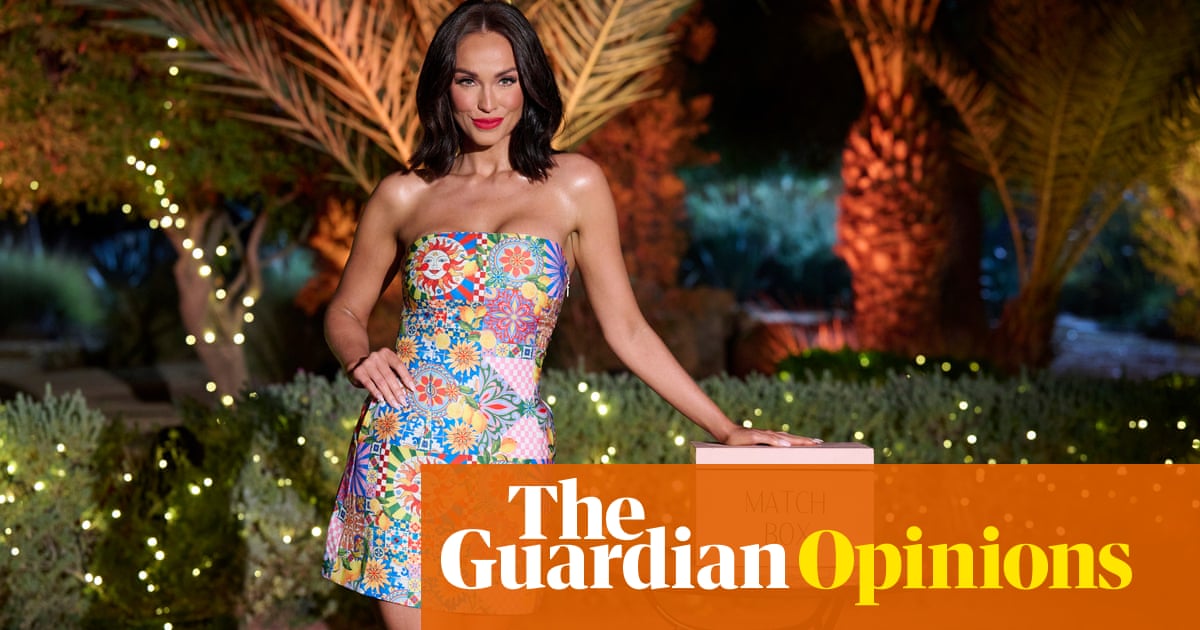In 1994, I went on a date. I had just arrived in a new country and I liked the guy: he seemed funny and confident. He took me to a hardware store (weird, but not a dealbreaker) and then for a Tex-Mex meal during which, at some point, I told him I drove a Land Rover.
It was a truly weird, dumb, lie – I knew nothing about cars and cared even less. Maybe I thought it made me sound grown up, tougher and more capable than I was, or maybe the margaritas went to my head? I’m sure I told him other lies (I remember giving the impression that I enjoyed clubbing), but that one was memorably stupid.
I was reminded of it recentlyby a trailerfor Channel 4’s new dating showThe Honesty Box. It’s another reality TV product of the Love Island genus in which attractive, spray-tanned young people lie around in swimwear generating low-stakes drama, but the twist this time is they must not lie, because a “state-of-the-art lie detection system” will probe their true feelings. The trailer sets some archetypes of dating liars to music – the guy with a filtered profile pic and fake age; the couple who claim they are polyamorous but are “actually nowhere near emotionally mature enough to handle that”; the girl whose healthy gym selfies conceal daddy issues “and crabs”! It’s playing on a deep sense of weariness at dating dishonesty, though whether an E4 competition with a £100,000 prize is the best medium to address this is debatable.
There is so much obfuscation, omission, embroidery and brazen fibbing around romance. We’ve crafted a whole lexicon of deceit to describe it, from catfishing to gaslighting orroaching(not disclosing you’re seeing other people). In 2024, aUS surveyfound that 21% of respondents had lied about their age on dating profiles; 14% about their income and hobbies and 12% about their height. This seems low (are people even lying in survey responses?), but I suppose telling profile lies –kittenfishing– is the tip of the lie-iceberg; when you’re messaging and meeting up, lies can proliferate. When you realise you like on someone, you could choose to get real with them, but there’s also a danger of doubling down on deceit, since there’s more to lose.
This might be me trying to justify my own idiotic fibbing, but is it all, always, awful? Obviously, there are egregious lies: the ones about your relationship status, sexual preferences, wanting kids when you don’t – the stuff that causes real harm. In a jaw-dropping viral 52-episode TikTok saga last year,“Who the fuck did I marry?”, a woman described how the man she met online and married turned out to have lied about work, finances, family and everything else; in its wake,the Cutspoke to five other women who discovered they were dating pathological liars of various stripes.
But I think these are – sorry – “outliars”: lesser dating lies are much more common. Many are attempts – however wrongheaded – at kindness or politeness.Researchers at Stanfordnamed them “butler lies”, the kind of face-saving fictions and manufactured excuses your butler might have proffered on your behalf back in the day. Lots more are surely born of insecurity. I suppose there must be people so serenely accepting of their personality, appearance and history that they are comfortable immediately offering their unvarnished selves to potential romantic partners, but they’re surely rarer than white rhinos. Lots of dating lies seem like a sort of wishful thinking, an attempt to be the better selves we assume others want. Is that a million miles away from wearing Spanx, concealer or Cuban heels?
Humans lie all the time – of course they do it in this most vulnerable of contexts and maybe sometimes that merits a compassionate blind eye. Easy for me to say, I suppose, after decades off the dating market. DIY-store date guy found out years later. He was baffled – he wouldn’t have cared remotely if I’d told him I was a carless loser – but thankfully, it wasn’t a dealbreaker. If I had faced interrogation from a state-of-the-art lie detector, maybe he wouldn’t be enjoying the dubious privilege of me 30 years later, in all my unlovely truth.
Emma Beddington is a Guardian columnist
